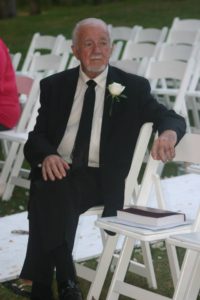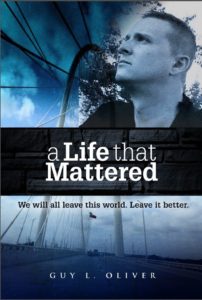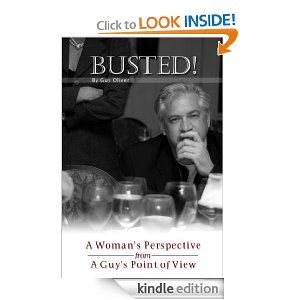I often wonder: when I pass from this Earth, “How will I be remembered?”
 Three years ago, in the early morning, on a Wednesday, my father passed, and it was very apparent how he was remembered. His funeral was literally standing room only and it lasted more than four hours. Person after person took the podium and extolled his virtues, each with an individual perspective of who my father was to them.
Three years ago, in the early morning, on a Wednesday, my father passed, and it was very apparent how he was remembered. His funeral was literally standing room only and it lasted more than four hours. Person after person took the podium and extolled his virtues, each with an individual perspective of who my father was to them.
In my childhood, my father was someone who could only be described as “tough.” In our lives there was no room for back-talk or bad manners or even warmth. Music didn’t grace our home. Jokes and humor were dismissed as frivolous. Discipline was constant, and religion and educational studies were paramount.
Dad earned a good living but he insisted that the life we lived was on his terms. All that said, dad was also a paragon of virtue. Throughout his entire life I don’t recall a single vice my father entertained once he and mom began having children—save the occasional drink with me as an adult. He was a smoker and a drinker before he began life with mom but, when children came into his life, he unceremoniously quit both and never spoke of either.
He was also a true patriot, something I admired and emulated. His uncles fought in both the Pacific and European theaters of World War II. One of them died during the Normandy invasion, and my father made it clear that their sacrifice and the sacrifice of men like them should be remembered quietly and with reverence. Memorial day was a somber occasion for my father’s family and he seldom spoke of the hardships his uncles endured.
He was also insistent on good manners. He taught me to remove my hat when entering a building, which is one of the reasons I seldom wear a hat as an adult. He taught me to hold the door for a lady, to watch my mouth in the presence of a lady, not to interrupt, and never to talk when a lady is speaking. Respect for the fairer sex was a thing he demanded of his sons and any man in his company. By any measure, he was a tough guy. And that was the man I knew as a child.
But in my teenage years someone else began to emerge in my father—someone I didn’t recognize. From time to time a tender heart would emerge, which was an odd punctuation of the displays of an iron fist as my brothers and I began to assert our independence, acquired driver licenses, and began listening to rock and roll—especially when he heard us playing The Beatles. He really hated the Fab Four, honestly believing that they had been duped by Communism and were part of a larger movement to destroy our country.
But after I married and began having children of my own I watched as slowly but surely the tender heart made more frequent appearances. I chalk this up to his decision to resign from his job and to become a minister two years later. As he began to minister to people in need, the promotion of virtue began to trump eschewing of vice. His philosophy and world view began to focus on what it meant to be virtuous and the notion that virtue was not the absence of vice.
Virtue for him became the attributes of kindness, compassion, forgiveness, and love of individuals. His world became a world of dos, gradually shunning don’ts. As I watched his body change and soften, it seemed to reflect the softer approach he embraced toward individuals as he ministered to them, encouraging a practical application of Biblical scripture to their everyday lives.
Do love others as you would be loved. Do minister to your wife or husband and your children. Do be a faithful employee. Do live a life of integrity and honesty. Do give unto others both your time and money. In short, do not hold up Jesus as an unapproachable icon, a figure on a cross to be admired. Instead, follow the example of his life because “Insomuch as you have done this for others you have done it for me.”
When I pass from this plane of existence I wonder what will be said of me. I don’t know. I only know that I can only aspire to be half the man my father eventually became.
Rest in Peace, dad. May God hold you in the hollow of his hand.
Guy-o


